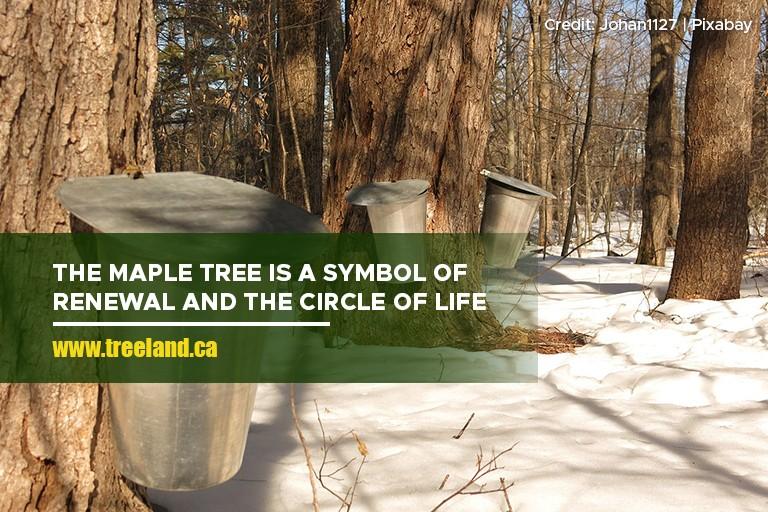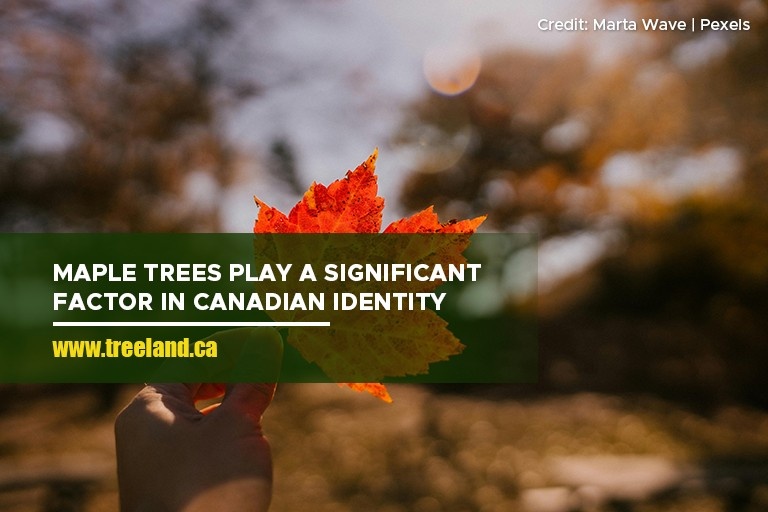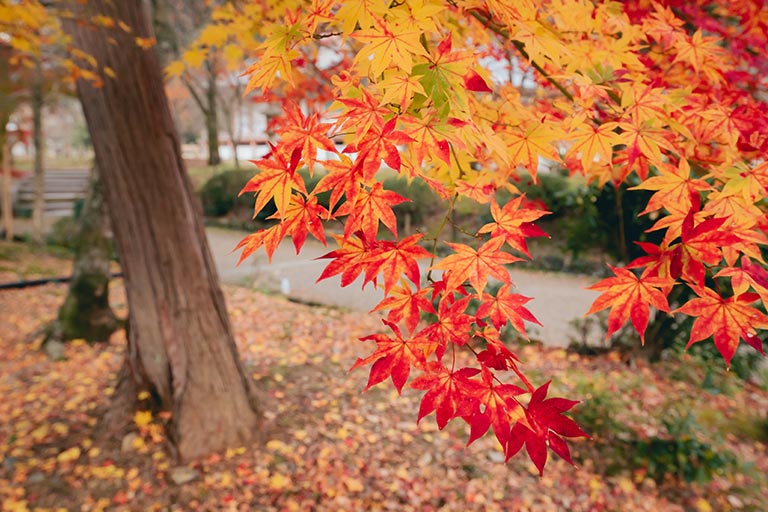Canada, often characterized by its vast natural landscapes, diverse culture, and unique traditions, boasts an iconic emblem that represents the essence of its identity—the maple tree. With its rich history and deep-rooted cultural significance, the maple tree has become an enduring symbol of Canada.
In this article, we will explore how maple trees, especially the red maple and sugar maple varieties, have become intertwined with Canadian culture, serving as a reflection of the nation’s heritage and values.
The Maple Leaf: Canada’s National Symbol
One cannot discuss the significance of maple trees in Canada without acknowledging the adoption of the maple leaf as the country’s national symbol. In 1965, Canada made history by introducing its distinctive red maple leaf flag. This bold move was a symbol of unity, distinguishing Canada from its colonial past and asserting its unique identity on the world stage. The maple leaf on the Canadian flag is a powerful representation of the nation’s cultural pride and independence.
Its Incorporation into the Canadian Flag
The iconic Canadian flag, with its prominent red maple leaf emblazoned on a white background, is instantly recognizable worldwide. This simple yet striking design reflects Canada’s commitment to peace, diversity, and inclusivity. The flag serves as a constant reminder of the importance of unity and the enduring values of the Canadian people.
Indigenous Perspectives on Maple Trees

Before European settlers arrived in Canada, Indigenous peoples had a profound connection with maple trees. They recognized the value of maple trees for their sap, which was used as a source of sustenance and trade. Maple sap was collected and transformed into syrup and sugar, providing essential nutrients during the winter months.
The Cultural and Spiritual Significance of Maple Trees
For Indigenous communities, maple trees held deep cultural and spiritual significance. The process of collecting sap and making maple syrup was often accompanied by ceremonies and rituals, reinforcing the connection between the people and the land. The maple tree, with its annual cycle of sap flow, became a symbol of renewal and the circle of life.
How Indigenous Communities Have Contributed to Maple Syrup Production
Today, Indigenous communities continue to play a vital role in maple syrup production. Their traditional knowledge and sustainable harvesting practices contribute to the preservation of maple tree ecosystems. By supporting Indigenous-owned maple syrup businesses, Canadians can engage in a meaningful way with this time-honoured tradition.
Maple Trees in Canadian Culture

Maple trees, with their vibrant leaves and storied history, have etched themselves into the very fabric of Canadian culture. These majestic trees, particularly the red maple and sugar maple varieties, are more than just a part of the landscape; they are living symbols of Canadian identity.
Maple Trees in Canadian Art and Literature
Canadian artists and writers have long drawn inspiration from the majestic maple tree. Painters have captured the vibrant colours of maple leaves in autumn, while poets have penned verses celebrating their beauty. The maple tr ee’s presence in Canadian culture is a testament to its enduring allure.
Maple Trees in Canadian Folklore and Legends
Maple trees are not only a subject of artistic expression but also central figures in Canadian folklore. Beyond their striking appearance and the sweet syrup they produce, maple trees hold a special place in the hearts and imaginations of Canadians. These tales not only reflect the deep connection between Canadians and their natural surroundings but also impart valuable lessons and insights.
- Maple trees as symbols of resilience and strength in Canadian folklore
In Canadian tales, maple trees often symbolize resilience and strength, with their ability to withstand harsh winters and thrive in challenging conditions. They are seen as a reflection of the Canadian spirit—a reminder that perseverance and determination can weather any storm.
- Stories of maple trees as guardians of secrets and hidden treasures
Canadian folklore is replete with stories of ancient maple trees serving as guardians of secrets and hidden treasures. These tales spark the imagination, fueling the belief that beneath the roots of these majestic trees, mysteries and riches may be concealed, waiting to be discovered.
- Legends featuring maple leaves as tokens of love and unity
Maple leaves, with their distinctive shape and vivid colours, have found their way into Canadian legends as tokens of love and unity. Stories abound of lovers exchanging maple leaves as symbols of their affection and commitment, reinforcing the idea that maple trees are witnesses to enduring bonds.
- Myths surrounding the magical properties of maple sap and syrup
Mythology often weaves tales of the magical properties of maple sap and syrup. From stories of these sweet elixirs granting vitality and wisdom to those who partake in them, to legends of maple sap serving as a source of healing and rejuvenation, these myths celebrate the enchanting qualities of maple tree products.
Maple Trees as a Source of Inspiration for Canadian Artists
Contemporary Canadian artists continue to be inspired by maple trees. Sculptors, photographers, and musicians use the maple tree as a symbol of Canadian identity, creating pieces that resonate with audiences both nationally and internationally.
The Economic Impact of Maple Trees
Maple syrup production is not just a tradition; it is a thriving industry in Canada. The country is renowned for producing high-quality maple syrup, making it a leading global supplier. This industry generates substantial economic benefits for rural communities, contributing to their sustainability.
Exporting Maple Syrup to International Markets
Canadian maple syrup has found its way into kitchens worldwide. The demand for this natural sweetener continues to grow, and Canadian producers have tapped into international markets. The export of maple syrup not only bolsters Canada’s economy but also spreads a taste of Canadian culture to diverse corners of the globe.
Supporting Local Economies Through Maple-Related Activities
Maple-related activities, such as maple festivals and agritourism, are vital to local economies. These events attract tourists, create jobs, and provide opportunities for Canadians to connect with their cultural roots. By supporting local maple producers, individuals can contribute to the sustainability of their communities.
Maple Trees and Environmental Conservation
Maple trees play a crucial role in preserving biodiversity in Canada’s forests. Their dense canopies provide habitat and shelter for a wide variety of wildlife, from birds to insects. As stewards of the land, Canadians recognize the importance of protecting maple tree ecosystems to maintain the country’s natural heritage.
The Significance of Maple Forests in Carbon Sequestration
In an era marked by growing concerns about climate change, maple forests offer a natural solution. These trees are adept at absorbing and storing carbon dioxide, making them essential contributors to the fight against global warming.
Efforts to Protect and Conserve Maple Tree Habitats
Conservation organizations, along with government initiatives, are working tirelessly to protect maple tree habitats. Efforts to combat invasive species, mitigate forest fires, and promote sustainable forestry practices are all part of the ongoing commitment to preserving Canada’s iconic maple trees.
Maple trees, particularly the red maple and sugar maple varieties, hold an undeniable place in the heart of Canadian identity. As symbols of unity, diversity, and resilience, they embody the values that Canadians hold dear. From their role in Indigenous cultures to their economic impact and environmental significance, maple trees continue to shape Canada’s cultural landscape.
If you’re interested in maple trees for sale in Toronto, contact us at Caledon Treeland by calling 905-880-1828. Join us in celebrating this iconic emblem of Canada’s natural heritage and cultural identity.

